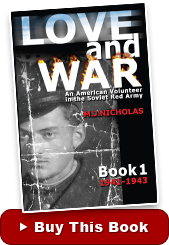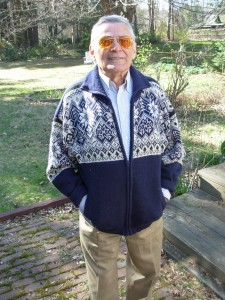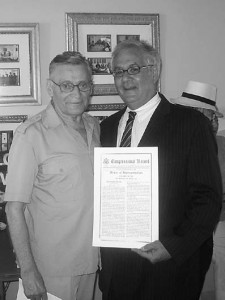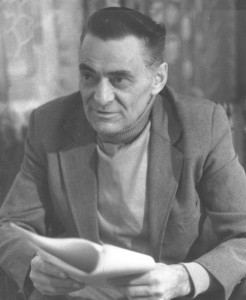
Buy Paperback
Kindle version will be available soon.
by M. J. Nicholas
IN JULY 1943, Nicholas commanded a tank in the biggest tank battle in military history, the Battle of Kursk, Russian S.F.S.R., some 450 kilometers (280 miles) nearly due south of Moscow. His platoon was part of a reconnaissance tank company, Soviet Red Army Central Front, commanded by Gen. Konstantin Konstantinovich Rokossovsky. While Nicholas and his crew were waiting in reserve, an air bomb exploded near the tank. Nicholas was buried alive and deafened by shell shock. He was 18 years old.
AT A FIELD HOSPITAL, he was irresistibly drawn to the beautiful ‘charming medical second lieutenant’ he had met fleetingly before. As this lovely and determined young nurse attended him, they fell under the spell of a fervent first love. He drew her portrait; they made love. He called her his Princess. For a few days’ respite from the war they were in seventh heaven.
HE RETURNED to his reconnaissance tank company in the Kursk Salient where Nazi armies were attempting a pincer maneuver; Hitler had ordered the Red Army be destroyed “to the last man.” Massive defense works held the Nazis off. In the Soviet counterattack, Nicholas fought at Ponyri, a town the soldiers called Little Stalingrad, where he witnessed a shocking sight.
SHORTLY AFTER, Nicholas’s tank was annihilated in a bomb blast and Nicholas himself was left for dead. By some miracle, he was found by that same young nurse, his Princess, and during the long weeks of his recovery she sat by his bedside while he told her of his family and of his own boyhood in America:
BORN INTO A RADICAL working class family, Nicholas described for his Princess his childhood pals in Bethlehem, Pennsylvania. He recalled vividly how his “Pop” – who worked at the open forge at Bethlehem Steel – often talked about class struggle and the lessons of history. He told her how his Pop, as a refugee from the incomplete 1905 revolution in Russia, escaped execution by the Tsar’s army and made his way to the U.S.A., how his family struggled during the Great Depression and how, in 1932, the family emigrated to Makeyevka, Soviet Ukraine, where Pop became a worker at the massive Kirov metallurgical plant.
THE NAZIS INVADED the Soviet Union in 1941, aiming their blitzkrieg at Moscow, Leningrad, Stalingrad and the coal and steel region where Nicholas’s family was living.
NICHOLAS, 16 YEARS OLD, tried to join the Soviet Red Army but the military commissar in Makeyevka crudely denied his application and kicked him to the street. In October, scarcely ahead of the Nazi’s occupation of Makeyevka, and for his own safety, his parents sent him to Kazakhstan, 2,500 kilometers to the east – alone. He was meant to stay with his Uncle Rodion in Aktyubinsk.
HE WAS STILL ITCHING to fight the fascists but felt thwarted. However, help came from a visiting dignitary – the Russian writer Alexei Tolstoy – and with a bit of luck, Nicholas was at last accepted into a military school in Moscow. As a student he was selected for a mission with the partisans at their camp deep in the forest beyond the Soviet front lines.
LATER, ON HIS WAY to the Central Front, he made a new friend and lost him in tragic circumstances. He experienced his first terrifying air bombardment.
THEN HE CAUGHT HIS FIRST GLIMPSE of ‘the most beautiful nurse in the whole Red Army” – the charming medical second lieutenant. It was she who was destined to become his Princess. They lost track of one another with an army and a war between them. She said she would “find him” and her image and voice haunted him for weeks. He didn’t even know her name.
MEANWHILE, Nicholas was picked to join a reconnaissance tank company and so at last went off to war against fascist Germany. He learned how to command a T34/75 tank. He developed deep brotherly friendships with his comrades-in-arms. He came to respect and admire Sr. Lt. Oleg Milyushev, his platoon commander, and Capt. Nikolai Zhikharev, his company commander, for their military sagacity and their innate humanity. At one point he even met, face to face Gen. Rokossovsky, Hero of Stalingrad and commander-in-chief of the Central Front.
AND SO Nicholas arrived at that point near Krolivets where he was left for dead, and was rescued by his Princess. He heard at last from his brother in Makeyevka his family’s fate under Nazi occupation and that his Mom refused to accept the notice of Nicholas’s “death”.
HE LEARNED the real name of his Princess. Ready to get back to the front lines, he got a shock to his heart, but he could do nothing about it.
THROUGHOUT Nicholas was struck by the bittersweet irony that Love’s tenderness and the clash of War, like hope and terror, could so completely co-exist.




